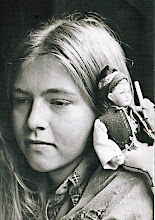
Hot Springs was the first city in Arkansas to have streetcar service, with mule-drawn streetcars from 1875 until 1893, and then electric streetcars until 1938. This card shows a scene from about 1935.
I wasn't surprised to read that the streetcars in Arkansas were segregated by race at the turn of the century, but I was surprised to hear about the protests against it. In fact both white and black passengers seemed unhappy with being told where they could and couldn't sit. Black leaders organized a boycott after the enactment of the racial segregation in 1903. The number of black riders dropped by 90 percent during the boycott, which lasted for three weeks. Unfortunately, the streetcar providers had little power to overturn the state law and segregation continued.
The depot in Hot Springs has been restored and there are now trolleys to take visitors through historic Hot Springs. If you want to see some older historic postcards of Hot Springs, there is a book entitled Hot Springs Arkansas in Vintage Postcards By Ray and Steven Hanley. It's really worth a look.
Here's the back of the card.



















